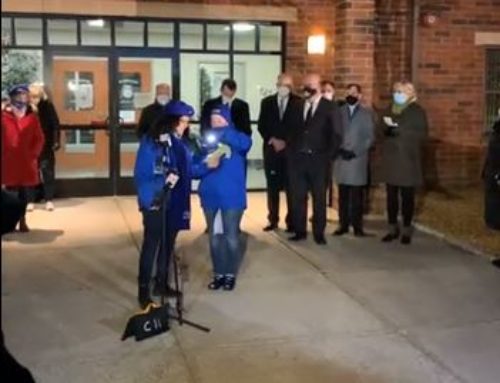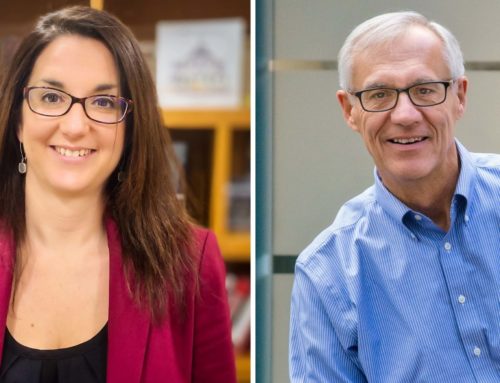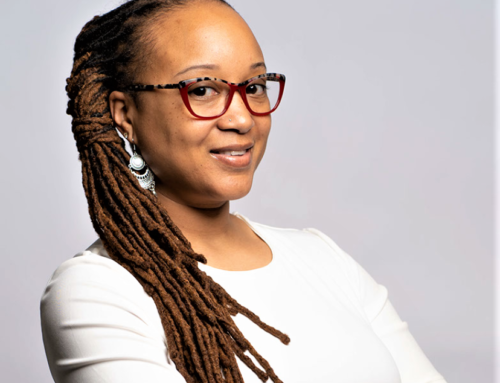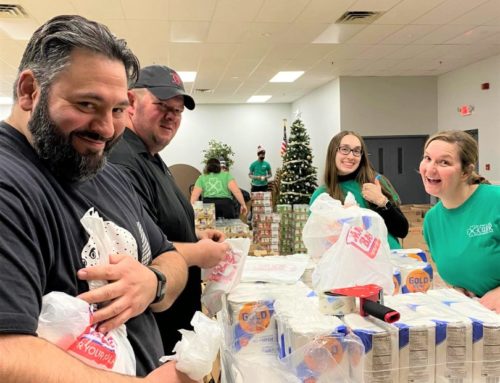Tim Garvin, the President and CEO of United Way of Central Massachusetts, received an email in 2020 that a donor wanted to make a significant contribution to his organization.
In December of that year, philanthropist MacKenzie Scott provided the United Way of Central Massachusetts with a $5 million gift. Now, as a result of that gift from Scott, 14 organizations within Central Massachusetts have been awarded a total of $1 million to fund initiatives through a Community Challenge organized by Garvin and the United Way.
The money from Scott was unrestricted, and the United Way of Central Massachusetts worked to spread the wealth – per se – through several focus areas, including remote learning hubs for 1300 kids, as well as investing in programs that support early education.
“I think everyone finally during Covid realized that early education is not just good for kids. It’s also really good for parents,” Garvin said. “It provides a safe base for kids to thrive both academically and socially emotionally. It allows parents to work, which means it supports the economy.”
In addition to focusing on early education, Garvin and the United Way of Central Massachusetts also wanted to work on helping lift people out of poverty, as well as intentionally investing in equity, diversity and inclusion.
“It’s been a year later but I still love that quote from Desmond Tutu: ‘We got to stop pulling people out of the river and start looking at why they’re falling in,’” Garvin said. “We wanted to start looking at not just treating poverty but really trying to find where are the root causes and how we can stop it from happening.”
The United Way of Central Massachusetts created a small board to determine how to best distribute the money to have the greatest community impact in the focus areas of early education, poverty and equity, diversity and inclusion.
“That term ‘you form, you storm, you norm, and you perform,’” Garvin said, “More and more of the idea of trying to follow the spirit of MacKenzie Scott of not going through the usual process but trying to make sure it was open to others and make sure we would seek and find and support new-to-us grantees.”
Thus the Community Challenge was born. Garvin said he wanted to ensure that everyone was able to participate and that no organization would be left out by not having a grant writer, so they went about it a bit differently.
The United Way of Central Massachusetts requested 90 second video submissions to address the issues of diversity, equity and inclusion, early education and/or poverty. The videos were meant to discuss how the organization fits into the fund’s initiatives and how it would be used.
“We wanted to get the word out to everyone,” Garvin said. “It didn’t just have to be nonprofits. It could be college professors or students or practitioners or businesses.”
“We are grateful to MacKenzie Scott for making this Community Challenge possible, and also to the individuals and organizations that submitted their ideas to address some of the biggest issues in our city,” Garvin said. “We are proud of our ongoing commitment to serve this community by advancing innovative ideas and practices.”
Almost 100 videos were submitted, and 20 were selected to present before the judges.
The organizations chosen presented to a panel of 10 judges during a pitch-style contest at the Brick Box Theater of the JMAC in Worcester.
The judges included Garvin, Jay Ash, president and CEO of the Massachusetts Competitive Partnership; Eric Batista, assistant city manager, Worcester; Joe Hamilton, partner at Mirick O’Connell Attorneys at Law; AiVi Nguyen, partner at the law firm of Bowditch & Dewey; Luis Pedraja, president of Quinsigamond Community College; Gina Plata-Nino, community legal aid attorney; Alex Richardson, WooSox manager of ballpark and community relations; Naomi Sleeper, chair of United Way of Central Massachusetts and vice president of Imperial Distributors; and Valerie Zolezzi-Wyndham, owner and founder of Promoting Good.
“We wanted a mixture of people that were connected to the community and were visionary thinkers,” Garvin said.
Each organization was provided with five minutes to present their ideas, with a possible five minutes of questions to follow.
The selected grantees and their projects, announced November 23, are:
- American Antiquarian Society: to create a pilot program to host two interns from the Nipmuc tribe who will be mentored for six months to acquire library and digitalization skills which will lead to equitable and improved access to important archival sources
- Coalition for a Healthy Greater Worcester: to expand on local-informed, community-wide Trauma, Resiliency and Racial Equity Training Institute to engage leaders and practitioners in anti-racism work, develop common language, and provide opportunities for personal and professional development
- Crocodile River Music: to expand the music program to Worcester Public Schools as an after school program which will consist of five weekly, high-energy, interactive workshops and culminate in a concert performance
- Family Services of Central Massachusetts: to strengthen family childcare educators in Project Flourish through an Early Childcare Apprenticeship program to support newly licensed educators with bilingual instruction and skilled mentoring while they build networks of peers and mentors
- Latino Education Institute at Worcester State University – Readers’ Theatre: to use multilingual Worcester State University students majoring in theater and education to engage with youth readers and instill an interest in reading
- Muslim Community Link: Black Seed Farmers Market: to fund a communal kitchen space in the Main South neighborhood of Worcester to serve specifically immigrant and refugee women. The food will be sold through the Black Seed Farmers Market to enable the women to lift themselves and their children out of poverty.
- OurStory Edutainment: to expand curated programming that provides an opportunity for the community to learn the rich history of Black people that is often left out of the mainstream as well as building organization infrastructure
- Regional Environmental Council: to create a farm to ECE program in Worcester that will increase access to healthy, affordable, and culturally relevant foods while enhancing the ECE environment, engaging families and community members, as well as supporting comprehensive childhood development
- Saint John’s High School: to impact boys and young men and their families by promoting the benefits of middle school, high school, adn college graduation through a supportive program that will support in academic rigor, enrichment, awareness building, tutoring, mentoring, and advising in collaboration between Worcester East Middle School, St. John’s High School, and Quinsigamond Community College
- Technocopia: to pursue a partnership with Hector Reyes House and give individuals an outlet to exercise their minds, hands, and creativity through a 35-hour program that will train six participants in customized classes within a makerspace
- The Community Builders: to allow residents to build or improve their credit so that they can achieve financial goals and move out of poverty
- Urban Parks Education Program: to provide naturalist early educator training and necessary clothing so that students can enjoy, explore, and learn in a natural environment close to their school
- Worcester Community Action Council, Inc: to help families traverse the Cliff Effect barrier by hiring a Cliff Effect Navigator to provide coaching along with direct payments for unexpected bills and childcare expenses in hopes of bridging the gap and providing families with financial empowerment tools
- Yes credit is everything: to work with Worcester’s immigrant population to provide financial education and credit building skills to help them achieve their financial goals
“They are wicked cool. The ideas – they pop and they hum,” Garvin said. “They are innovative and creative. They are the kind of things that you’d want your kids to go to or your community to have. Us at the United Way, we are thrilled and excited.”
An additional $1 million has been reserved from the Scott fund so that in year two the United Way of Central Massachusetts will be able to “super fund” around five ideas.






Leave A Comment